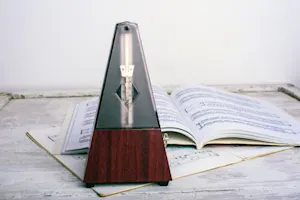What Makes This Word Tick
"Stentorian" is one of those words that truly has a presence. It describes sounds—usually voices—that are loud and powerful, like those epic movie narrators or that one friend who really knows how to project in a crowded room.
If Stentorian Were a Person…
If "stentorian" were a person, they'd totally be that unforgettable drama teacher you had in high school—commanding, charismatic, and capable of quieting a room with just a glance before launching into a speech worthy of Broadway.
How This Word Has Changed Over Time
The word "stentorian" hasn't strayed far from its original roots. It’s stayed pretty true to its loud nature, echoing the grand oratories and vibrant public speakers throughout history.
Old Sayings and Proverbs That Use Stentorian
While "stentorian" doesn’t have famous proverbs directly attached, it’s akin to phrases like “horse of a different color” or “talk of the town”—where the emphasis is on something noteworthy and attention-grabbing.
Surprising Facts About Stentorian
Did you know that "stentorian" originates from Stentor, a herald in the Trojan War, famous for his loud voice? Legend has it that Stentor’s voice was as powerful as fifty men shouting together, making it quite the claim to fame!
Out and About With This Word
You’re likely to encounter "stentorian" at public gatherings or performances, especially when the sound system is just a little too good or when someone takes a microphone who definitely didn't need it.
Pop Culture Moments Where Stentorian Was Used
Think about Darth Vader’s commanding, booming voice filling the Death Star or the iconic bellowing of James Earl Jones—these examples haven’t directly used "stentorian," but they certainly embody it.
The Word in Literature
"Stentorian" fits snugly in epic tales and grand narratives, where commanding figures often take center stage. Authors like Homer, with his grand epics, might have whispered "stentorian" if he knew it, to describe his heroes' resounding calls.
Moments in History with Stentorian
Picture Martin Luther King Jr. at the helm of a civil rights rally, his voice, stentorian, echoing for miles. History is peppered with moments where powerful leaders used their voices to move mountains, even if "stentorian" wasn't explicitly used.
This Word Around the World
Globally, the equivalent of "stentorian" might reflect cultural norms about speech and presentation. In some cultures, being loud is the norm at family gatherings, while in others, it might be reserved for specific occasions like festivals or ceremonies.
Where Does It Come From?
Our friend "stentorian" traces back to ancient Greece, inspired by Stentor of Homeric fame, marking its origins in a world of gods and heroes, fit for the voice of Olympus itself.
How People Misuse This Word
People sometimes use "stentorian" when they simply mean someone is loud, but it's meant for voices that are not just loud, but also commanding and impressive—a critical distinction.
Words It’s Often Confused With
Loud: Any high volume, not necessarily commanding.
Booming: Similar volume, but more on impact rather than the quality of voice.
Sonorous: Pleasant-sounding but doesn't imply loudness or command.
Resonant: Echoes and vibrates, rather than just loud.
Additional Synonyms and Antonyms
Synonyms for "stentorian" include booming, thunderous, and resonant. For antonyms, consider soft-spoken, hushed, or whispering.
Want to Try It Out in a Sentence?
"The principal's stentorian voice cut through the chatter of the unruly assembly, restoring order with impressive efficiency."
















